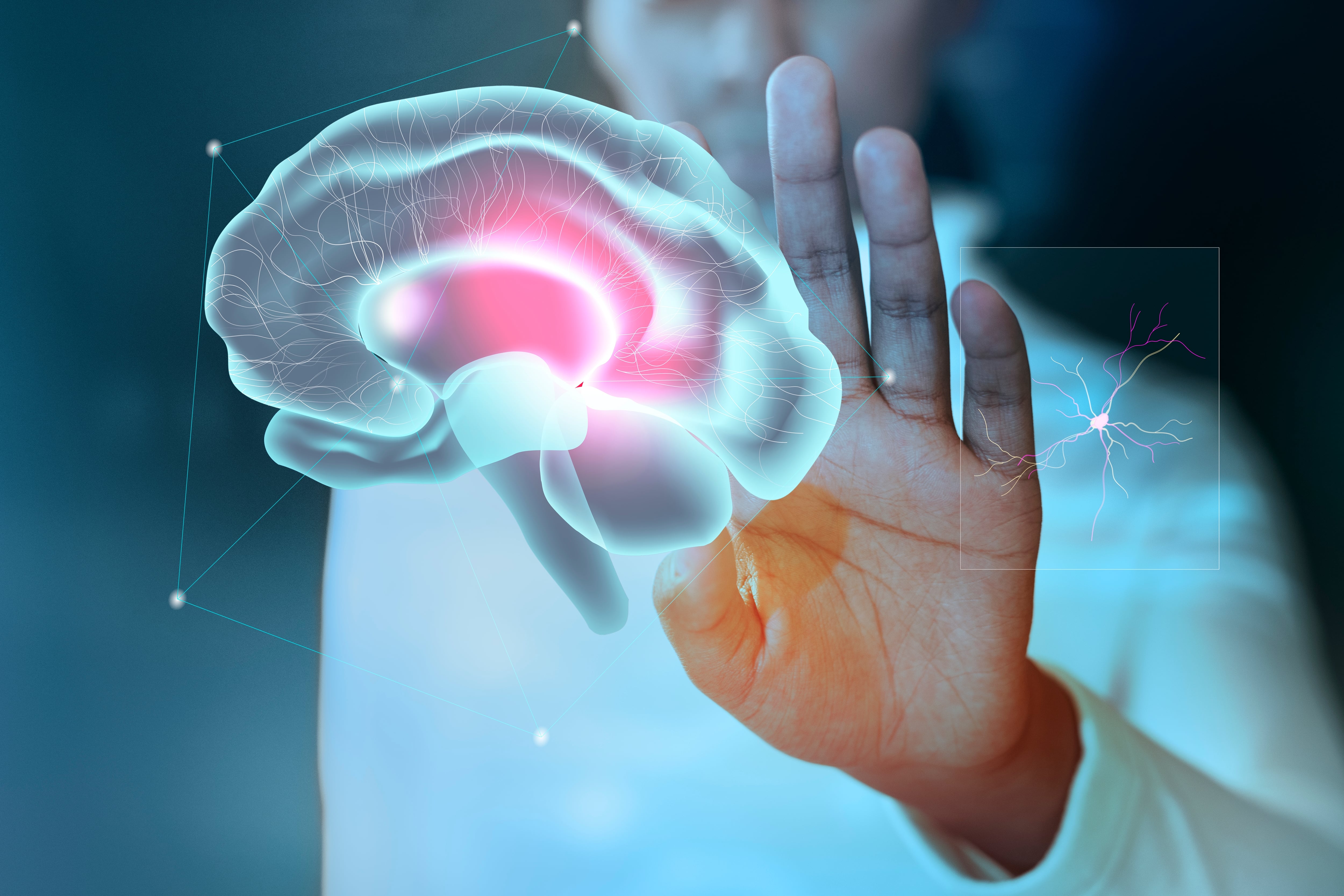
Introduction
Epilepsy, particularly its refractory forms, presents a significant challenge in neurology, affecting millions worldwide. Conventional treatments often fall short for patients with drug-resistant epilepsy, leading to a search for alternative therapies. Cannabidiol (CBD), a non-psychoactive compound derived from cannabis, has emerged as a promising candidate. The study by Devinsky O et al., titled “Cannabidiol as a Treatment for Epilepsy: Current Evidence,” delves into the efficacy of CBD in reducing seizure frequency and severity in patients with refractory epilepsy. This blog post will explore the key findings, advantages, disadvantages, and broader implications of this research.
Understanding the Study
The study conducted by Devinsky and colleagues offers a comprehensive overview of CBD as a treatment for epilepsy, particularly focusing on its effectiveness in reducing seizures in patients with drug-resistant forms of the condition. Grounded in clinical trials, the research provides a robust analysis of CBD’s therapeutic potential, highlighting both its benefits and limitations.

Key Findings
1. Breakthrough in Refractory Epilepsy: The study emphasizes CBD’s potential in treating refractory epilepsy, where patients do not respond to standard anti-epileptic drugs. This represents a significant advancement, offering hope to those who have exhausted conventional treatment options.
2. Mechanism of Action: Unlike THC, CBD does not directly interact with cannabinoid receptors. Instead, it influences various neurotransmitter systems, such as serotonin and adenosine, and modulates inflammation and oxidative stress. These mechanisms contribute to its anti-seizure effects and make it a unique therapeutic option in epilepsy treatment.
3. Impact on Quality of Life: Beyond reducing seizure frequency, the study also evaluates CBD’s impact on overall quality of life. Improvements in sleep, mood, and cognitive function are highlighted, demonstrating the holistic benefits of CBD for epilepsy patients.
Advantages of the Study
- Clinical Relevance: The study addresses a critical need for alternative epilepsy treatments, particularly for patients with refractory epilepsy. By focusing on this subset, the research highlights CBD’s potential as a valuable therapeutic option.
- Robust Evidence: Based on clinical trials and empirical data, the study provides a detailed analysis of CBD’s effects, including dosage information and patient responses. This evidence supports the growing acceptance of CBD in medical practice.
- Patient-Centric Approach: The research emphasizes patient outcomes, focusing on seizure reduction and quality of life improvements. This aligns with the real-world needs of epilepsy patients and their caregivers.
- Side Effect Profile: The study thoroughly examines the side effects of CBD, offering a balanced perspective on its safety and tolerability. Understanding the risk-benefit ratio is crucial for integrating CBD into epilepsy treatment protocols.
Disadvantages of the Study
- Limited Long-Term Data: One of the main limitations is the lack of long-term data. While the study provides promising short-term results, it does not extensively cover the long-term effects of CBD use, which are essential for a complete understanding of its therapeutic potential.
- Potential Bias: As with many studies in emerging fields, there is a potential for bias, especially given the growing commercial interest in CBD products. The influence of external funding or industry pressures could affect the interpretation of results.
- Heterogeneity of Patient Response: The study acknowledges significant variability in patient responses to CBD, complicating the generalizability of the findings. Not all patients experience the same level of seizure reduction, limiting the universal applicability of CBD as a treatment.
Consequences and Implications
The findings of this study could have significant implications for epilepsy treatment, particularly for patients with refractory forms of the condition. If further research continues to support the efficacy and safety of CBD, it could lead to wider acceptance and integration of CBD-based therapies in clinical practice. However, the study also highlights the need for more research into the long-term effects and potential risks associated with prolonged CBD use.
Regulatory and Policy Implications
The study’s findings have far-reaching implications for regulatory policies. As the evidence supporting CBD’s efficacy grows, it could lead to more lenient regulations surrounding cannabis-based treatments, broader access, and reduced stigma. However, the research also underscores the need for standardization and quality control in CBD product production, ensuring patients receive consistent and reliable treatments.
Future Research Directions
The study by Devinsky O et al. sets the stage for future research by identifying key gaps and unanswered questions. For instance, while short-term effects are promising, more studies are needed to evaluate the long-term safety and efficacy of CBD. Additionally, research into optimal dosing, potential interactions with other medications, and the effects of different CBD formulations will be crucial in refining treatment protocols.
Conclusion
The research conducted by Devinsky O et al. on CBD as a treatment for epilepsy marks a significant advancement in neurology and pharmacology. It offers hope for those with refractory epilepsy and contributes to a broader understanding of cannabinoids in medicine. The study’s innovative approach, focus on quality of life, and implications for regulatory change make it a pivotal piece of research in the evolving landscape of cannabis-based therapies.
References
Devinsky O, et al. (Year). Cannabidiol as a Treatment for Epilepsy: Current Evidence. PubMed. [Link: https://pubmed.ncbi.nlm.nih.gov/29250205/]

![Let the raindrops keep falling, when you’ve got the powerful drops of Full Spectrum oil with you. With Awshad, you’ll not feel unusually low during the monsoon. Trust us, it’s just a phase.
awshadwellness #healing #health, green health, health and wellness ayurveda, care] #awshad](https://scontent-bom2-3.cdninstagram.com/v/t51.82787-15/525508389_18046782380556668_287620203980256963_n.webp?stp=dst-jpg_e35_tt6&_nc_cat=110&ccb=1-7&_nc_sid=18de74&_nc_ohc=wXYZUsc0EeMQ7kNvwF9mkzR&_nc_oc=Adl6-xSvafGtgi6cilSazKmogKqlMjTsUBA8I7985bVSvJ-mtClECIZfb62nOSTldczhuPWaJVeUgUi277ojSYvq&_nc_zt=23&_nc_ht=scontent-bom2-3.cdninstagram.com&edm=ANo9K5cEAAAA&_nc_gid=ipyUG18VcHhGOq4VhxxJYw&oh=00_AfSWuTWIZLon4St3C4nUjCjNEkH8BJAvVi38thTnaQ0Vqg&oe=688FB9F0)
![Let the raindrops keep falling, when you’ve got the powerful drops of Full Spectrum oil with you. With Awshad, you’ll not feel unusually low during the monsoon. Trust us, it’s just a phase.
awshadwellness #healing #health, green health, health and wellness ayurveda, care] #awshad](https://scontent-bom1-1.cdninstagram.com/v/t51.82787-15/524444118_18046782392556668_6430538198768718948_n.webp?stp=dst-jpg_e35_tt6&_nc_cat=104&ccb=1-7&_nc_sid=18de74&_nc_ohc=NG_bYVn-Z_EQ7kNvwGndVKF&_nc_oc=AdmlJdnr2mfg0fljsYd3a5kUOEyDlOQUv7rxIUhh8m0TRQGNM71eKOFiOZ4KChyhse3-lBIchO_amTkGL4ZEdjzC&_nc_zt=23&_nc_ht=scontent-bom1-1.cdninstagram.com&edm=ANo9K5cEAAAA&_nc_gid=ipyUG18VcHhGOq4VhxxJYw&oh=00_AfTNUeD2X5v_JLR_YPB21_-ZnKfFqHqrUzZlQyLeVVuXtA&oe=688FC16B)
![Let the raindrops keep falling, when you’ve got the powerful drops of Full Spectrum oil with you. With Awshad, you’ll not feel unusually low during the monsoon. Trust us, it’s just a phase.
awshadwellness #healing #health, green health, health and wellness ayurveda, care] #awshad](https://scontent-bom2-1.cdninstagram.com/v/t51.82787-15/525396270_18046782401556668_2173099860971820854_n.webp?stp=dst-jpg_e35_tt6&_nc_cat=108&ccb=1-7&_nc_sid=18de74&_nc_ohc=sBUrAQ88NjIQ7kNvwFA2SmU&_nc_oc=Adl8e4HBflmgEqg0Pqi79V154UlBRUNlR7QctglqAW4HozCMoyzDcnk_i8QeoE0TwmK4DivTWvS8tu3N6US9ouMr&_nc_zt=23&_nc_ht=scontent-bom2-1.cdninstagram.com&edm=ANo9K5cEAAAA&_nc_gid=ipyUG18VcHhGOq4VhxxJYw&oh=00_AfS2AVfhole-R8j8rmSglEM7k2-SDydGXtQ0UvwDtI1tqw&oe=688FD844)
![Feeling wired when you should be winding down? CBD may help calm your mind, ease tension, and support deeper, more restful sleep—naturally. So, breathe out the stress. Sleep better.
Save this post & share it with someone who needs rest tonight.
awshadwellness #healing #health, green health, health and wellness ayurveda, care] #awshad](https://scontent-bom2-1.cdninstagram.com/v/t51.82787-15/524417877_18046539332556668_6570912977729932125_n.webp?stp=dst-jpg_e35_tt6&_nc_cat=108&ccb=1-7&_nc_sid=18de74&_nc_ohc=jz_o5rNhIcQQ7kNvwGi7jOF&_nc_oc=AdlOC23utf-Pwz5CfgwJmcWm-3Ldeg0qxGM49NmkVdp62J4VX6pW0B-MDXGT2w8E55KFFXpoHrBEB3MTluMS1Hkj&_nc_zt=23&_nc_ht=scontent-bom2-1.cdninstagram.com&edm=ANo9K5cEAAAA&_nc_gid=ipyUG18VcHhGOq4VhxxJYw&oh=00_AfRllyRIUI9HjRrBqfu2eL_Z-DefP32pqfEfhwRhXDgujw&oe=688FBE1C)
![Feeling wired when you should be winding down? CBD may help calm your mind, ease tension, and support deeper, more restful sleep—naturally. So, breathe out the stress. Sleep better.
Save this post & share it with someone who needs rest tonight.
awshadwellness #healing #health, green health, health and wellness ayurveda, care] #awshad](https://scontent-bom1-1.cdninstagram.com/v/t51.82787-15/525042452_18046539341556668_6684047278654212947_n.webp?stp=dst-jpg_e35_tt6&_nc_cat=104&ccb=1-7&_nc_sid=18de74&_nc_ohc=OBR2JHe3PzoQ7kNvwEphXNS&_nc_oc=Adk7GpmXG1s002IhP1PDF1GfqPAleLUU6ujDKx0s7aDiAv2wOp8HEXirtCnhzpJk_vTypXAyzL4GYWqLZIDj2N-M&_nc_zt=23&_nc_ht=scontent-bom1-1.cdninstagram.com&edm=ANo9K5cEAAAA&_nc_gid=ipyUG18VcHhGOq4VhxxJYw&oh=00_AfTvWtTOhm61-u3A2mcqkRLtkjC7m6VErHa9x88416z-Pg&oe=688FE1F4)
![Feeling wired when you should be winding down? CBD may help calm your mind, ease tension, and support deeper, more restful sleep—naturally. So, breathe out the stress. Sleep better.
Save this post & share it with someone who needs rest tonight.
awshadwellness #healing #health, green health, health and wellness ayurveda, care] #awshad](https://scontent-bom2-1.cdninstagram.com/v/t51.82787-15/524521320_18046539353556668_83173383789783640_n.webp?stp=dst-jpg_e35_tt6&_nc_cat=105&ccb=1-7&_nc_sid=18de74&_nc_ohc=pXuCeEnhn5EQ7kNvwHCn4Ps&_nc_oc=AdnhffI99bGwJscbYWdL41xiek6HWPkmwirYyL1mHq42DMP2jec_rcyMf4vtXbx_tLGHNgge47dFNxBqA8_ZO_-T&_nc_zt=23&_nc_ht=scontent-bom2-1.cdninstagram.com&edm=ANo9K5cEAAAA&_nc_gid=ipyUG18VcHhGOq4VhxxJYw&oh=00_AfSBgblj1eQzop9Kad7CXhZdLcJKYP52oc4KJ9bn-uLLuQ&oe=688FC4BE)
![Feeling wired when you should be winding down? CBD may help calm your mind, ease tension, and support deeper, more restful sleep—naturally. So, breathe out the stress. Sleep better.
Save this post & share it with someone who needs rest tonight.
awshadwellness #healing #health, green health, health and wellness ayurveda, care] #awshad](https://scontent-bom1-2.cdninstagram.com/v/t51.82787-15/525021332_18046539365556668_2541529019793570677_n.webp?stp=dst-jpg_e35_tt6&_nc_cat=109&ccb=1-7&_nc_sid=18de74&_nc_ohc=eBThXbKB-1YQ7kNvwFQtTry&_nc_oc=AdkTlXzDVxIroRDAdIlRh5ErqxGJ-gO4B4ovzk1LAaXN-qsql7CGj6aMvX7qy0OiMYV6XujfeGZLvj85Zg-xRplE&_nc_zt=23&_nc_ht=scontent-bom1-2.cdninstagram.com&edm=ANo9K5cEAAAA&_nc_gid=ipyUG18VcHhGOq4VhxxJYw&oh=00_AfR6gRaI7vmb3A4KgNdFOu3mfQ38cXXMfNQQLdyRc31LDQ&oe=688FD459)
![Feeling wired when you should be winding down? CBD may help calm your mind, ease tension, and support deeper, more restful sleep—naturally. So, breathe out the stress. Sleep better.
Save this post & share it with someone who needs rest tonight.
awshadwellness #healing #health, green health, health and wellness ayurveda, care] #awshad](https://scontent-bom2-3.cdninstagram.com/v/t51.82787-15/523948523_18046539374556668_8166387329337484893_n.webp?stp=dst-jpg_e35_tt6&_nc_cat=101&ccb=1-7&_nc_sid=18de74&_nc_ohc=jgig4AgPkhIQ7kNvwFT15R6&_nc_oc=AdlMNIFywF5l6AZ160tmhLJIrhA-T6xGvwyIHb11cLk86pURzcDrwNC0_OD88rirsTwb1qEPmq0PVfYCHkuJEw5t&_nc_zt=23&_nc_ht=scontent-bom2-3.cdninstagram.com&edm=ANo9K5cEAAAA&_nc_gid=ipyUG18VcHhGOq4VhxxJYw&oh=00_AfT56iShLSa8uZD0sarYG9Pg-aOYqZb0v3YT5KGv4Jd02w&oe=688FDF9A)
![It feels illegal but it’s legal, we promise. Check out our website for proof!
awshadwellness #healing #health, green health, health and wellness ayurveda, care] #awshad](https://awshad.com/wp-content/uploads/2022/06/523925340_18046184282556668_599732807729025438_n.jpg)
![Stress can wreak havoc on digestion—but CBD may help ease tension, calm the gut, and support a more balanced system. Take a breath. Trust your gut. Save this post & share it with someone who needs a reset from the inside out.
[ CBD, CBD products, wellness, health, wellness products, self care, all natural healing, happiness] #Awshad](https://scontent-bom1-2.cdninstagram.com/v/t51.82787-15/521975962_18045892904556668_2710068828576068354_n.webp?stp=dst-jpg_e35_tt6&_nc_cat=100&ccb=1-7&_nc_sid=18de74&_nc_ohc=aA6WSKJyhCEQ7kNvwG4MNsE&_nc_oc=Adk-b0zmcZ-A3hdoRG3PY0XxQgYWTH_OKCo51UwRMvmuUFJYuZmE07xdge5bXmb2h63zk6PDqZ_seExLHuxLtL0C&_nc_zt=23&_nc_ht=scontent-bom1-2.cdninstagram.com&edm=ANo9K5cEAAAA&_nc_gid=ipyUG18VcHhGOq4VhxxJYw&oh=00_AfQkH6W25n_K_L4mhjmVC-26jp_lsgu69Poq1xr_MJtdbw&oe=688FD1FB)
![Stress can wreak havoc on digestion—but CBD may help ease tension, calm the gut, and support a more balanced system. Take a breath. Trust your gut. Save this post & share it with someone who needs a reset from the inside out.
[ CBD, CBD products, wellness, health, wellness products, self care, all natural healing, happiness] #Awshad](https://scontent-bom2-3.cdninstagram.com/v/t51.82787-15/521446693_18045892913556668_1803768348628413488_n.webp?stp=dst-jpg_e35_tt6&_nc_cat=110&ccb=1-7&_nc_sid=18de74&_nc_ohc=WojvKeOnbOwQ7kNvwEeDjc3&_nc_oc=AdkhmJhM4M2lHhtNZi8j7RlxV8VDMsHBvhP_zx6E4tzh24PI2ZCc4Ahoiv_5N4qlEgz2b_isbgCB1goMI-8x0Cnw&_nc_zt=23&_nc_ht=scontent-bom2-3.cdninstagram.com&edm=ANo9K5cEAAAA&_nc_gid=ipyUG18VcHhGOq4VhxxJYw&oh=00_AfQzyq-x4VkRpbWocOr8hy2XKXCLDcHQ1M5ydIflnQWXAg&oe=688FE272)
![Stress can wreak havoc on digestion—but CBD may help ease tension, calm the gut, and support a more balanced system. Take a breath. Trust your gut. Save this post & share it with someone who needs a reset from the inside out.
[ CBD, CBD products, wellness, health, wellness products, self care, all natural healing, happiness] #Awshad](https://scontent-bom2-4.cdninstagram.com/v/t51.82787-15/521323232_18045892928556668_2225382532647044185_n.webp?stp=dst-jpg_e35_tt6&_nc_cat=102&ccb=1-7&_nc_sid=18de74&_nc_ohc=s8_TLS8W0dsQ7kNvwEVgKdL&_nc_oc=AdmwJYjBU62PB8v8jdzJaO6jCSlxTZrirL5O_voookkPuF2RD7bZAtEUTPPGWjIaEAjXPTT7h-IGySJoNFF6Zik3&_nc_zt=23&_nc_ht=scontent-bom2-4.cdninstagram.com&edm=ANo9K5cEAAAA&_nc_gid=ipyUG18VcHhGOq4VhxxJYw&oh=00_AfSn0vcztM2tURXkf8e6JnUM0lPxEmUsLgKQGkzy4t6xlw&oe=688FC812)
![Stress can wreak havoc on digestion—but CBD may help ease tension, calm the gut, and support a more balanced system. Take a breath. Trust your gut. Save this post & share it with someone who needs a reset from the inside out.
[ CBD, CBD products, wellness, health, wellness products, self care, all natural healing, happiness] #Awshad](https://scontent-bom2-4.cdninstagram.com/v/t51.82787-15/521861233_18045892937556668_2397297173940881240_n.webp?stp=dst-jpg_e35_tt6&_nc_cat=106&ccb=1-7&_nc_sid=18de74&_nc_ohc=18wTSUyxPvUQ7kNvwGO1jo7&_nc_oc=AdnBX-Shi-Qse-GSlMvx8RIpiAWLTh5PG82nYNwj14tD2Pbfmt5f7GCT_IwB1DgmlM7SNaMF7V4QrzdIX-cpJJXC&_nc_zt=23&_nc_ht=scontent-bom2-4.cdninstagram.com&edm=ANo9K5cEAAAA&_nc_gid=ipyUG18VcHhGOq4VhxxJYw&oh=00_AfTXlrKA_6KDLG8q0Ri8jDs6WAthjgMlSDbpocPls4ofag&oe=688FBC41)
![Stress can wreak havoc on digestion—but CBD may help ease tension, calm the gut, and support a more balanced system. Take a breath. Trust your gut. Save this post & share it with someone who needs a reset from the inside out.
[ CBD, CBD products, wellness, health, wellness products, self care, all natural healing, happiness] #Awshad](https://scontent-bom2-3.cdninstagram.com/v/t51.82787-15/521296563_18045892949556668_2739174932365462674_n.webp?stp=dst-jpg_e35_tt6&_nc_cat=103&ccb=1-7&_nc_sid=18de74&_nc_ohc=YfP-HpOrllUQ7kNvwEpXQsq&_nc_oc=Adkyb4TFz0qDtrMgWc081haLJmJfSyVgZkqnS7iQE-RwdHAp_m9Ohz-QjbQGCeem6XgXZ5Goez-BQ0IAhQwhRLgu&_nc_zt=23&_nc_ht=scontent-bom2-3.cdninstagram.com&edm=ANo9K5cEAAAA&_nc_gid=ipyUG18VcHhGOq4VhxxJYw&oh=00_AfRMllTTN-rnzlEuPRdJt_LE0rx1QB6sbAc6FIxyj743pA&oe=688FBFDE)